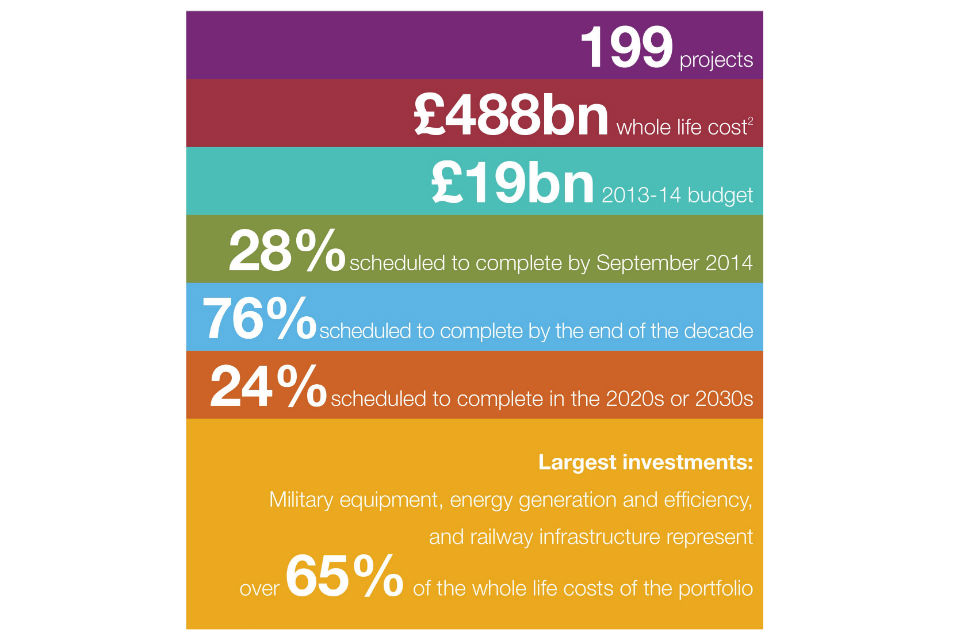
Having completed my first month as Interim CEO of the Major Projects Authority, I thought it might be worthwhile to capture my first impressions of government after a lifetime in the private sector.
The scope and scale of the overall government enterprise is immediately impressive. And the extent and the pace of change in government is a real eye-opener to those of us who have spent our careers in industry. It is an exciting and dynamic environment - perhaps too dynamic in some cases, as it is hard to do everything well when you’re trying to do so much. Prioritisation and “quality through choice” are key ingredients to successful project execution: pick the right project, and do the project right.
A uniquely challenging environment
I have been reflecting on the differences and the similarities between government and my previous working environment. It’s perhaps easier to spot the differences: (i) the political context creates an environment in which priorities can shift more rapidly than is typical in the private sector; (ii) clear objectives can be much more difficult to define when one is trying to serve so many diverse interest groups; and (iii) relentless public scrutiny places a premium on avoiding mistakes - which in turn creates challenges for innovation. Creating the conditions for successful project execution is difficult in almost any environment, but it is perhaps uniquely challenging in the public sector.

On the other hand, the similarities far outweigh the differences. The fundamental challenges of being in the centralised part of a largely decentralised function are not unfamiliar: getting the right balance between objective challenge and expert support; engaging early enough in a project life cycle to really make a difference; supporting departments in the development of professional skills and capability; creating simple standards to provide clear guidance across the whole enterprise. These are the common elements of functional leadership in many different environments. In my experience, the single most important factor for success is the ability of the centre and the businesses (departments) to be truly collaborative in pursuit of a single objective - the successful execution of projects. At the end of the day, the right behaviours are critical.
Improving project execution
I have been struck by the Government's determination to improve the quality of project execution and all the departments that I have met so far seem deeply engaged with the issue of improving the quality of their project execution capability. This has many manifestations, one of the most important of which is the training and development of project leaders. The Major Projects Leadership Academy (MPLA), is an outstanding leadership training programme by any measure. Back in 2011 I participated in one of the very first planning sessions for the MPLA, sharing some of the lessons learned from the programme I co-founded for BP. Great project leaders deliver great projects, and the MPLA is playing a substantial role in building the self-confidence of project leaders, something which is so critical in creating the conditions for successful project execution. I hope that we will be able to reach a much wider part of the government community as we develop the next level Project Leadership Programme.
One of the key offerings of the MPA is independent project assurance. Based on my observations so far, this is a world-class service, delivering high quality independent assessments of major projects at various stages of their life-cycle. Of course there is always room for improvement, particularly in the area of front-end loading. The success or failure of projects is often determined in the very early stages, when policy objectives hit the reality of implementation. Despite repeated efforts over the years, the MPA, and indeed project specialists across government, still struggle to become engaged in projects at an early enough point to really influence these critical early stages. We will be pressing really hard in the coming months to improve the connection between policy makers, project executors and front line operations so that policies can be assured of the best possible chance of seamless delivery.
It’s a privilege to be given the opportunity to work on the project system in the public sector, where even relatively small improvements in such a large system can create massive benefits for the taxpayer and satisfaction to those charged with delivering nationally significant projects on time, on budget and at the right level of quality.
